Featured
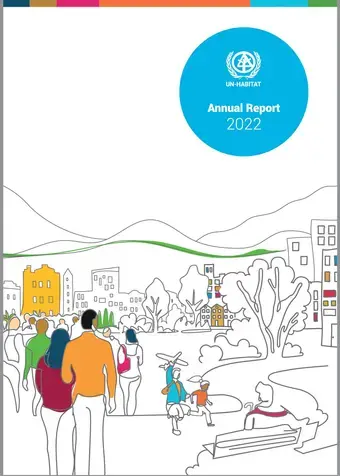
Annual Report
Annual report 2022
The global economic crisis and COVID-19 have exacerbated inequality and stalled sustainable economic development. Conflict, food insecurity, the climate crisis and other emergencies forced more than 100 million people… Read more

Global Report
Rescuing SDG 11 for a resilient urban planet
The current report shows that the world is off track in achieving SDG 11. Rescuing SDG 11 is urgent for the sake of present and future generations. The report points to the immense opportunities that exist and the… Read more
- Reset filters
- 20 results
- (-) Afghanistan
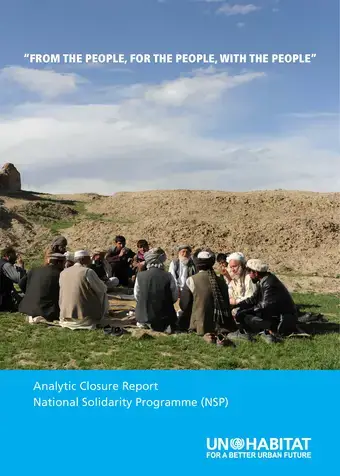
Document
“From the people, for the people, with the people”
2017
The National Solidarity Programme (NSP) was a flagship programme of the Government of Afghanistan benefiting from more than $2.3 billion of donor funding. The programme had the goal of building peace and solidarity amongst the people and to empower them to be responsible for local level governance and development.
Read now
Learn more
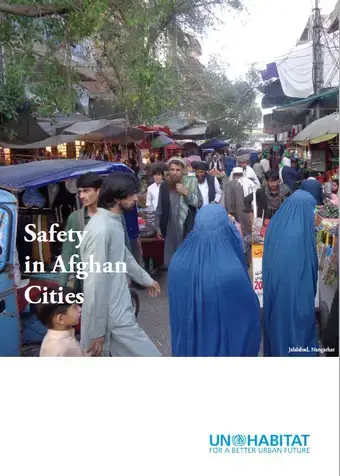
Technical Report
Safety in Afghan Cities
2016
Policy and programme experiences from different countries have shown the correlation between government legitimacy, stability and peace. The Afghanistan Urban Peacebuilding Programme (AUPP) addresses this complex relationship between governance and peace. The “Safety in Afghan Cities” report, developed from the programme’s baseline survey, presents public perceptions on urban safety in eight of Afghanistan’s most strategic cities, including Kabul, Mazar-e-Sharif, Jalalabad, Herat, Kunduz, Nili…
Read now
Learn more
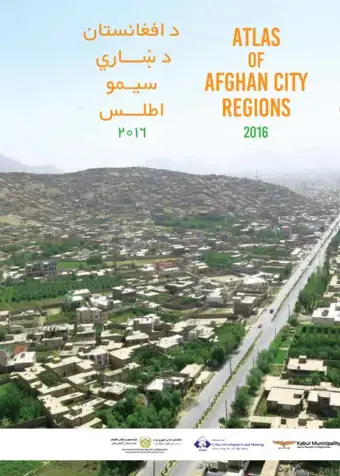
Publication
Atlas of Afghan City Regions
2016
The “Atlas of Afghan City Regions 2016” is a seminal publication on the spatial and governance data covering five major city regions, which are, Kabul, Kandahar, Herat, Jalalabad and Mazar-i-Sharif, and 28 strategic district municipalities.
Read now
Learn more
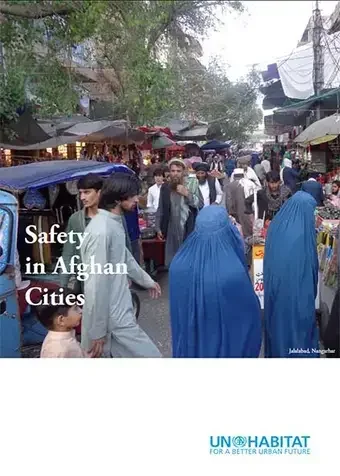
Technical Report
Afghanistan Urban Peacebuilding Programme (AUPP)
2016
Policy and programme experiences from different countries have shown the correlation between government legitimacy, stability and peace. The Afghanistan Urban Peacebuilding Programme (AUPP) addresses this complex relationship between governance and peace. The "Safety in Afghan Cities" report, developed from the programme’s baseline survey, presents public perceptions on urban safety in eight of Afghanistan’s most strategic cities, including Kabul, Mazar-e-Sharif, Jalalabad, Herat,…
Learn more
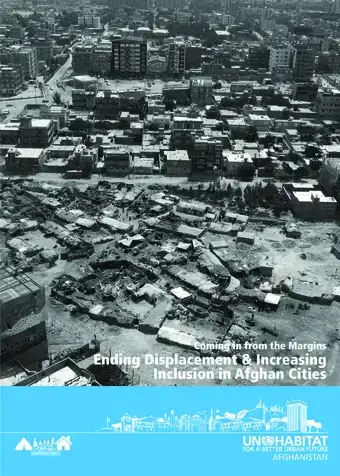
Technical Report
Coming in from the Margins: Ending Displacement & Increasing Inclusion in Afghan Cities
2016
Since 2002, over 5.6 million Afghans have returned from neighbouring countries and as many as 40% of them have not been able to reintegrate in their original locations. The total number of recorded IDPs in Afghanistan is more than 1.2 million. These returnees together with IDPs, rural-urban migrants and high natural population growth have resulted in an unprecedented expansion of Afghan cities. During the past decade, returnees, IDPs and low-income migrants face major obstacles to accessing…
Read now
Learn more
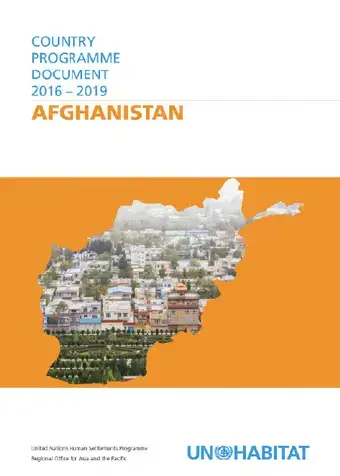
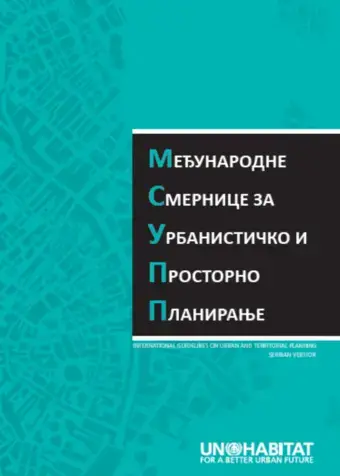
Toolkits, Manuals and Guides
Serbian Version of International Guidelines on Urban and Territorial Planning
2015
The need for planning cannot be over-emphasized. Urbanization is progressing rapidly and by 2050, seven out of ten people will be living in cities. Inappropriate policies, plans and designs have led to inadequate spatial distribution of people and activities, resulting in proliferation of slums, congestion, poor access to basic services, environmental degradation, and social inequity and segregation.
Read now
Learn more
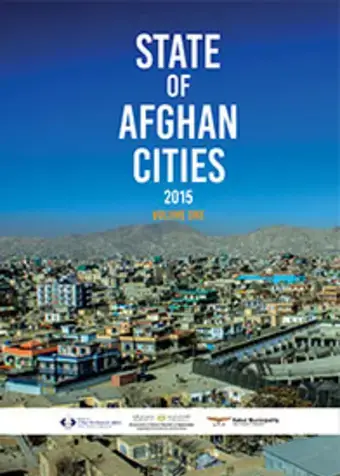
Country Report
State of Afghan Cities report 2015 (Volume-I English)
2015
Afghanistan's future is urban. The population of Afghan cities is expected to double within the next 15 years and by 2060, one in every two Afghans will be living in cities. In order to manage such a transition and harness it for economic and social development accurate data and information is essential.
Read now
Learn more
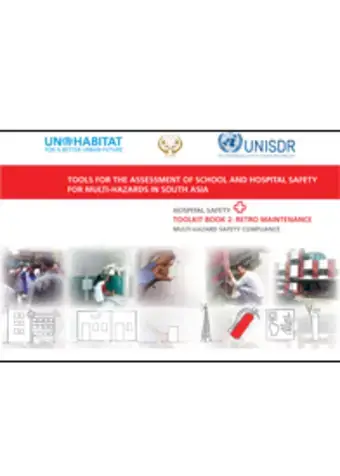
Toolkits, Manuals and Guides
Tools and Methodologies for Safer Schools and Hospitals in South Asia: RetroMaintenance of Hospitals
2012
UN-Habitat ROAP in partnership with UNISDR Asia Pacific Secretariat developed a Tool Kit to assess the safety of critical infrastructure, focusing on schools and hospitals in South Asia.
Learn more
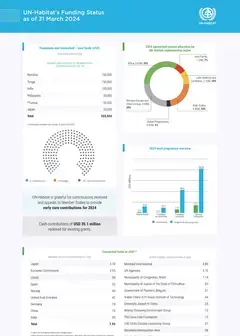
Financial Audit
UN-Habitat’s Funding Status as of 31 March 2024
Posted on April 22nd, 2024
Read now
Document
Draft technical inputs into draft decisions towards the first session of 2024 of the Executive Board as at 17 April 2024
Posted on April 22nd, 2024
Read now
Document
Communication from the Embassy of Ukraine in the Republic of Kenya for the period of 23 March 2024 to 10 April 2024
Posted on April 19th, 2024
Read now
Press Release
Global experts start work on UN guidelines on people-centred smart cities
Posted on April 19th, 2024
Read now